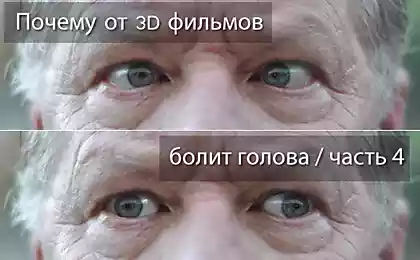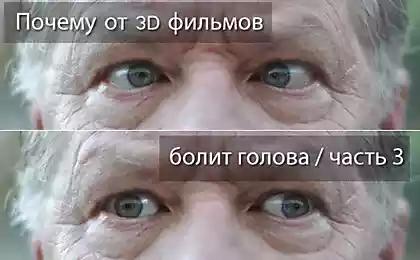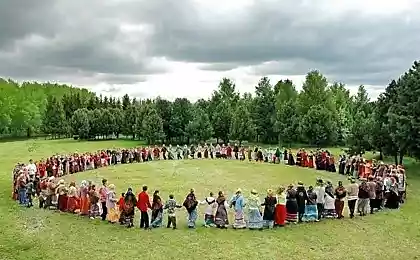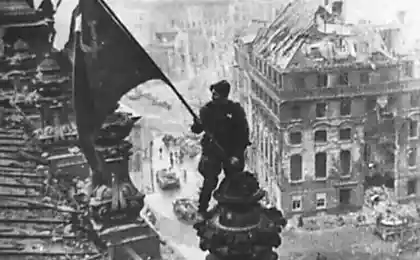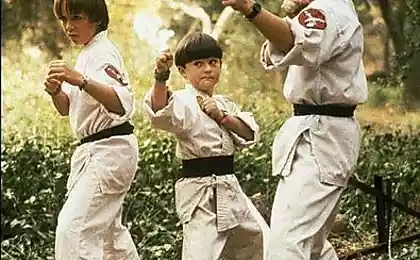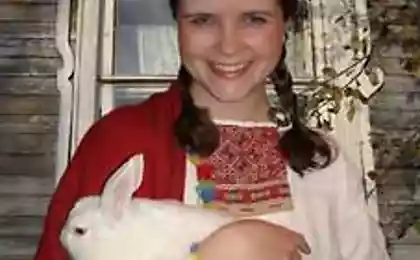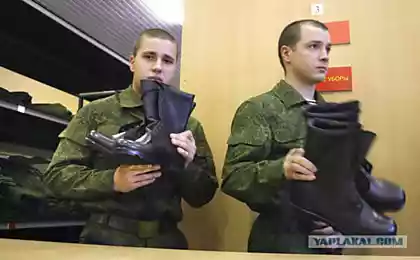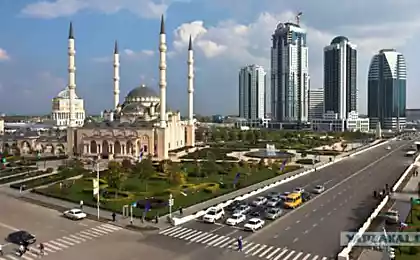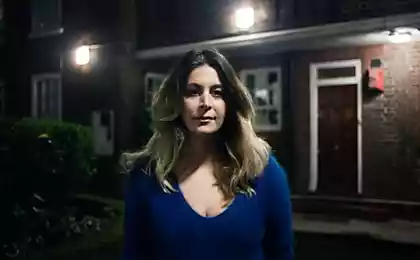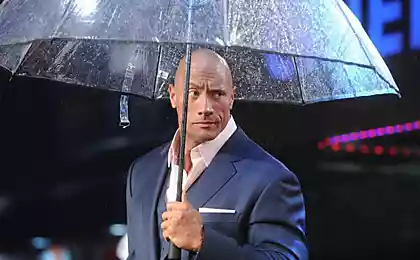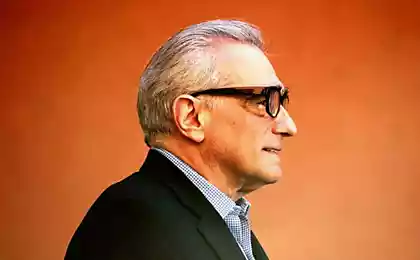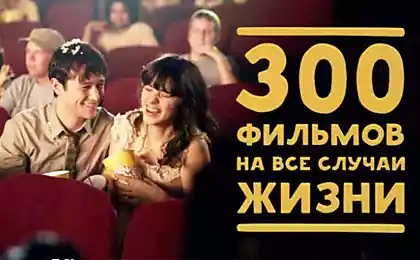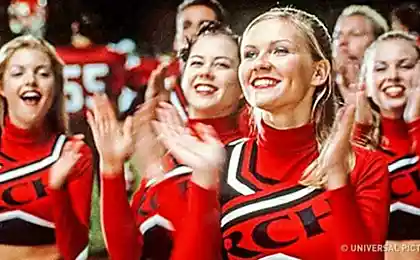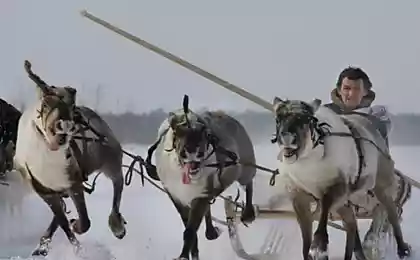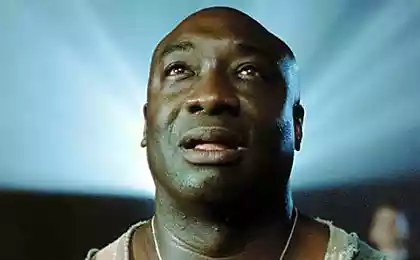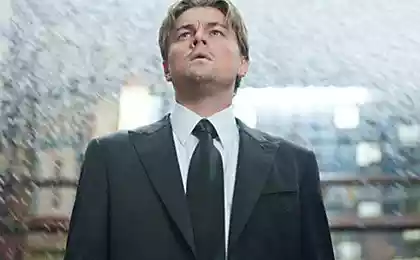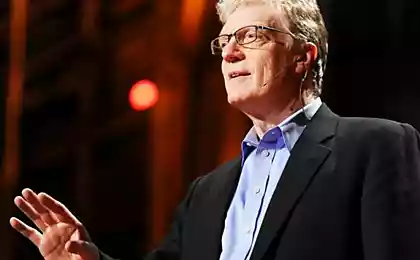607
20 Russian films that recommends Harvard
Harvard University recently published a list of the most important in the history of movies, which included two dozen Russian paintings. And even at this moment of our movie "is not in the best shape," is that we have such films, proves that Russia is able to create a great movie! So, film critic Dmitry Karpyuk explained what is so good these pictures, and why they are so highly appreciated at Harvard. < Website publishes a selection of films with his comments
"Kino-eye" (1924) and "The Man with a Movie Camera" (1928), the director -. Dziga VertovNe not clear how they can be treated separately. Both films are like bottomless cylinder magician - all possible kunshtyukov and technical tricks were invented back in the 20s Vertov, and modern filmmakers admire and borrow them still
<. br> «Battleship" Potemkin "", director - Sergei Eisenstein (1925) One of the best, if not the best movie of all time, according to many authoritative critics, filmmakers and ordinary viewers. Film critic, will certainly be interesting and innovative mounting snapped on quotes shooting scene on the Odessa steps, but one of the most striking and painful images in the film - the awakening of the sailors of the battleship from slavish sleep after they attempted to feed the worm-eaten meat. After such a treat if they begin to see the essence of its existence and break out of the cocoon of apathy and obedience. . The rest is history, including the history of cinema
«According to the law", the director - Lev Kuleshov (1926) In this film adaptation of "unexpected" Jack London short story Kuleshov built Yukon to Moscow the-river. The first film is remarkable combination of long and ragged assembly plans, but even if we ignore the technical nuances, he still looks at least with interest because of the moral dilemmas - to arrange the murderer lynching or give it to the hands of the law
<. br>
«Mother" (1926) and "The End of St. Petersburg" (1927), director - Vsevolod PudovkinPervy film - adaptation of Maxim Gorky and one of the greatest achievements of the Soviet cinema. Poignant story about a family of reactionary father, revolutionary son and a loving mother, dying with a red banner in his hands under the hooves of mounted gendarmes. The second - also a political film about the struggle of the Bolsheviks with the capital world, the collapse of the empire through the tragedy of the little man. It makes them not only the absence of sound, the call to "sing, the revolution!" And fascinating use of multiple exposure, and actor Alexander Chistyakov. In one film, he played the father-tyrant Pan with a beard, and the other - of working, managing storm the Winter Palace
«Turksib", the director -. Victor Turin ( 1929) Mute, dynamic and full of energy in the five-part documentary, and with the timing of an hour on the construction of a cotton Soviet way - the Turkestan-Siberian Railway. Curiously, directed by Victor Turin revolutionary years attended University in Massachusetts and returned only in 1922, missing the most important time for the country
«Andrei Rublev", the director -. Andrei Tarkovsky (1966 ) chronicles the great icon painter is in fact related to the almanac through parables storyline, where you can see and Christian themes, and theme the relationship between power and art. But above all, this movie is showing some of the dirt and blood born art. Burning cow, blinded by the master, in scattered in the woods, Nikulin, choking boiling tar - all will result in a string of colored icons in the final black-and-white film. Each of them can be seen for a long time and find it just a fragment of the scanned picture
«King Lear», the director -. Grigori Kozintsev (1970) "In the troubled year is always a blind man for crazy ... "not a gram of falsehood in the acting (Juri Yarvet voiced Zinovy Gerdt, especially beautiful), not a single weak shot - the latest film Kozintseva who has removed, by the way, in front of this excellent" Hamlet "knowingly made the list. The whimsical combination of angles and light and shade if you want you can see echoes of Ingmar Bergman with Orson Wells and obvious similarities with "Andrei Rublev", but above all it is the best film adaptation of Shakespeare in the history of Russian cinema.
< br> «the Earth", director - Alexander Dovzhenko (1930) Silent movie about how in the period of collectivization in the village brought the tractor, the kulaks did not like it, and they killed young communist Vasil. In the narration does not sound very exciting, but then there is only one dance Vasil be far from good road at night, as if caught in a pattern of "an enchanted place." A montage scenes of peasants working in the field? And Vasil funeral that turned into a rally, "without priests and without clerks" with "new songs about the new life"? A frenzied kulak dance background sticking out of the land of crosses? To the bone fusion of poetry and realism, Platonov and Gogol lyrical look at the demolition of the old order and the arrival of the new times.
«The Cranes Are Flying" (1957) and "Ballad of a Soldier" ( 1959), director - Mikhail Kalatozov and Gregory ChuhrayDva beautiful film about love and war, one - a poem in prose, the second - a ballad, as stated in the title. In deservedly received the "Palme d'Or" in Cannes "Crane" can be infinitely admire camerawork Sergei Urusevsky and enjoy face Tatiana Samoilova. The film is full of lyricism sixties, romance, a member of the clinch with the aesthetics of Italian neo-realism. However, modest, tender and full of humanism picture Chuhraja about the journey of a soldier who went on leave to see his mother, and fell on the road, painful wounds and remains at the heart of the viewer longer. However, everything is subjective
«Shadows of Forgotten Ancestors" (1964) and "The Color of Pomegranates" (1969), the director -. Sergei Paradjanov "Shadows of Forgotten ancestors "- poignant story of love, which is stronger than death, the novel by Ukrainian writer Mikhail Kotsyubyns'kogo. One can go to talk about the clash in the film pagan and Christian worldviews and folklore motives. But to penetrate, just look at the mask for the final funeral, the stunning murder scene when blood fills lens camera operator Yuri Ilienko great.
"The Color of Pomegranates" - a phantasmagoria, an animated palette of colors, look at the inner world of the medieval Armenian poet Sayat Nova. Here, the plot gives way to form the background, but it does not prevent the transmission of mood. In Parajanov, like no other, it turned out to compose poetry in cinema
«Alexander Nevsky", the director -. Sergei Eisenstein (1938) Yes, the propaganda film, but what! Impressive scenes Sech, "firm" Eisenstein's montage, symbiosis pictures and brilliant music of Sergei Prokofiev. That there is a time when the horizon appears avalanche of the Teutonic Knights and the sounds of drums and horns replaced darkly majestic, almost ecclesiastical musical theme. But worry is, of course, not necessary - the nature is on our side, and all the Germans will leave the ice
«Ivan the Terrible", the director -. Sergei Eisenstein (1944) It is perfectly all - from strong images and games Nikolai Cherkasov, costumes and sets up the guardsmen shot in dance color in the second, did not like Stalin and forbidden to show parts of the film (it is strange that only the first series of the movie hit the list). Now some of the nuances of acting may seem a bit comical, but before the tangible, real hard power of pictures disappear any questions
«Ordinary Fascism", the director -. Mikhail Romm (1967) Masterpiece Romm recommended for viewing not only documentary filmmakers and film critics - a combination of terrible shots, caustic voiceover and bravura music still has a very strong effect
«War and peace", the director -. Sergei Bondarchuk (1967) Large-scale Soviet and film, as it may belong, certainly a bold attempt Bondarchuk's film very heavy Russian classic novel
«Ascent", the director -. Larisa Shepitko (1976) War film based on the novel by Vasil Bykov "Sotnikov "raises important moral questions, and at some point turns into a biblical parable. Music by Alfred Schnittke, the game Gostyukhin, Plotnikov and Solonitsyn and directing genius of Larisa Shepitko literally removed the soul
«Nostalgia", the director -. Andrei Tarkovsky (1983) "Italian" film by Tarkovsky scenario Tonino Guerra with Oleg Yankovsky starring full of classical music, fragments of poems, gravitas and fog in the literal and figurative sense. You can like or dislike (after all, it is from here was born "tarkovschina" spoil many young filmmakers), but in this case it is an art, without the quotes.
«Russian ark ", director - Alexander Sokurov (2002) The film definitely deserves attention because of the techniques that Sokurov makes the cornerstone of the whole structure. Yes, the film is made up of one, without mounting gluing - within half an hour the camera travels through the Winter Palace, "cultural ark" of Russia, and it is at least nice
See also. 20 best films according to the genius of Quentin Tarantino
via mel.fm/2016/02/15/kino_garvard
"Kino-eye" (1924) and "The Man with a Movie Camera" (1928), the director -. Dziga VertovNe not clear how they can be treated separately. Both films are like bottomless cylinder magician - all possible kunshtyukov and technical tricks were invented back in the 20s Vertov, and modern filmmakers admire and borrow them still
<. br> «Battleship" Potemkin "", director - Sergei Eisenstein (1925) One of the best, if not the best movie of all time, according to many authoritative critics, filmmakers and ordinary viewers. Film critic, will certainly be interesting and innovative mounting snapped on quotes shooting scene on the Odessa steps, but one of the most striking and painful images in the film - the awakening of the sailors of the battleship from slavish sleep after they attempted to feed the worm-eaten meat. After such a treat if they begin to see the essence of its existence and break out of the cocoon of apathy and obedience. . The rest is history, including the history of cinema
«According to the law", the director - Lev Kuleshov (1926) In this film adaptation of "unexpected" Jack London short story Kuleshov built Yukon to Moscow the-river. The first film is remarkable combination of long and ragged assembly plans, but even if we ignore the technical nuances, he still looks at least with interest because of the moral dilemmas - to arrange the murderer lynching or give it to the hands of the law
<. br>
«Mother" (1926) and "The End of St. Petersburg" (1927), director - Vsevolod PudovkinPervy film - adaptation of Maxim Gorky and one of the greatest achievements of the Soviet cinema. Poignant story about a family of reactionary father, revolutionary son and a loving mother, dying with a red banner in his hands under the hooves of mounted gendarmes. The second - also a political film about the struggle of the Bolsheviks with the capital world, the collapse of the empire through the tragedy of the little man. It makes them not only the absence of sound, the call to "sing, the revolution!" And fascinating use of multiple exposure, and actor Alexander Chistyakov. In one film, he played the father-tyrant Pan with a beard, and the other - of working, managing storm the Winter Palace
«Turksib", the director -. Victor Turin ( 1929) Mute, dynamic and full of energy in the five-part documentary, and with the timing of an hour on the construction of a cotton Soviet way - the Turkestan-Siberian Railway. Curiously, directed by Victor Turin revolutionary years attended University in Massachusetts and returned only in 1922, missing the most important time for the country
«Andrei Rublev", the director -. Andrei Tarkovsky (1966 ) chronicles the great icon painter is in fact related to the almanac through parables storyline, where you can see and Christian themes, and theme the relationship between power and art. But above all, this movie is showing some of the dirt and blood born art. Burning cow, blinded by the master, in scattered in the woods, Nikulin, choking boiling tar - all will result in a string of colored icons in the final black-and-white film. Each of them can be seen for a long time and find it just a fragment of the scanned picture
«King Lear», the director -. Grigori Kozintsev (1970) "In the troubled year is always a blind man for crazy ... "not a gram of falsehood in the acting (Juri Yarvet voiced Zinovy Gerdt, especially beautiful), not a single weak shot - the latest film Kozintseva who has removed, by the way, in front of this excellent" Hamlet "knowingly made the list. The whimsical combination of angles and light and shade if you want you can see echoes of Ingmar Bergman with Orson Wells and obvious similarities with "Andrei Rublev", but above all it is the best film adaptation of Shakespeare in the history of Russian cinema.
< br> «the Earth", director - Alexander Dovzhenko (1930) Silent movie about how in the period of collectivization in the village brought the tractor, the kulaks did not like it, and they killed young communist Vasil. In the narration does not sound very exciting, but then there is only one dance Vasil be far from good road at night, as if caught in a pattern of "an enchanted place." A montage scenes of peasants working in the field? And Vasil funeral that turned into a rally, "without priests and without clerks" with "new songs about the new life"? A frenzied kulak dance background sticking out of the land of crosses? To the bone fusion of poetry and realism, Platonov and Gogol lyrical look at the demolition of the old order and the arrival of the new times.
«The Cranes Are Flying" (1957) and "Ballad of a Soldier" ( 1959), director - Mikhail Kalatozov and Gregory ChuhrayDva beautiful film about love and war, one - a poem in prose, the second - a ballad, as stated in the title. In deservedly received the "Palme d'Or" in Cannes "Crane" can be infinitely admire camerawork Sergei Urusevsky and enjoy face Tatiana Samoilova. The film is full of lyricism sixties, romance, a member of the clinch with the aesthetics of Italian neo-realism. However, modest, tender and full of humanism picture Chuhraja about the journey of a soldier who went on leave to see his mother, and fell on the road, painful wounds and remains at the heart of the viewer longer. However, everything is subjective
«Shadows of Forgotten Ancestors" (1964) and "The Color of Pomegranates" (1969), the director -. Sergei Paradjanov "Shadows of Forgotten ancestors "- poignant story of love, which is stronger than death, the novel by Ukrainian writer Mikhail Kotsyubyns'kogo. One can go to talk about the clash in the film pagan and Christian worldviews and folklore motives. But to penetrate, just look at the mask for the final funeral, the stunning murder scene when blood fills lens camera operator Yuri Ilienko great.
"The Color of Pomegranates" - a phantasmagoria, an animated palette of colors, look at the inner world of the medieval Armenian poet Sayat Nova. Here, the plot gives way to form the background, but it does not prevent the transmission of mood. In Parajanov, like no other, it turned out to compose poetry in cinema
«Alexander Nevsky", the director -. Sergei Eisenstein (1938) Yes, the propaganda film, but what! Impressive scenes Sech, "firm" Eisenstein's montage, symbiosis pictures and brilliant music of Sergei Prokofiev. That there is a time when the horizon appears avalanche of the Teutonic Knights and the sounds of drums and horns replaced darkly majestic, almost ecclesiastical musical theme. But worry is, of course, not necessary - the nature is on our side, and all the Germans will leave the ice
«Ivan the Terrible", the director -. Sergei Eisenstein (1944) It is perfectly all - from strong images and games Nikolai Cherkasov, costumes and sets up the guardsmen shot in dance color in the second, did not like Stalin and forbidden to show parts of the film (it is strange that only the first series of the movie hit the list). Now some of the nuances of acting may seem a bit comical, but before the tangible, real hard power of pictures disappear any questions
«Ordinary Fascism", the director -. Mikhail Romm (1967) Masterpiece Romm recommended for viewing not only documentary filmmakers and film critics - a combination of terrible shots, caustic voiceover and bravura music still has a very strong effect
«War and peace", the director -. Sergei Bondarchuk (1967) Large-scale Soviet and film, as it may belong, certainly a bold attempt Bondarchuk's film very heavy Russian classic novel
«Ascent", the director -. Larisa Shepitko (1976) War film based on the novel by Vasil Bykov "Sotnikov "raises important moral questions, and at some point turns into a biblical parable. Music by Alfred Schnittke, the game Gostyukhin, Plotnikov and Solonitsyn and directing genius of Larisa Shepitko literally removed the soul
«Nostalgia", the director -. Andrei Tarkovsky (1983) "Italian" film by Tarkovsky scenario Tonino Guerra with Oleg Yankovsky starring full of classical music, fragments of poems, gravitas and fog in the literal and figurative sense. You can like or dislike (after all, it is from here was born "tarkovschina" spoil many young filmmakers), but in this case it is an art, without the quotes.
«Russian ark ", director - Alexander Sokurov (2002) The film definitely deserves attention because of the techniques that Sokurov makes the cornerstone of the whole structure. Yes, the film is made up of one, without mounting gluing - within half an hour the camera travels through the Winter Palace, "cultural ark" of Russia, and it is at least nice
See also. 20 best films according to the genius of Quentin Tarantino
via mel.fm/2016/02/15/kino_garvard
20 places on the planet, which become even more beautiful with the arrival of spring
Plush beauty-cow from Iowa


